 The Manchester Triage System (MTS) is a series of clinical risk management tools used by clinicians worldwide to enable them to safely manage patient flow when clinical need far exceeds capacity. The following clinical risk management tools are available:
The Manchester Triage System (MTS) is a series of clinical risk management tools used by clinicians worldwide to enable them to safely manage patient flow when clinical need far exceeds capacity. The following clinical risk management tools are available:
- Emergency Triage:
Emergency departments and Ambulance services
- Telephone Triage
and Advice: Urgent care desks
- Prehospital Pathfinder: Ambulances
- SAFE pathways:
Community-based clinicians
A formal governance structure for MTS ensures that training, audit and
robust ongoing review is carried out routinely so that the tools stay safe,
up-to-date and relevant to current practice.
The MTS tools are licenced to recognise the ownership of the
intellectual property of MTS content and also to provide ongoing funding for the
governance processes. The licencing
agreement also provides a formal connection between the MTS and its end-users
ensuring that end-users receive the correct training, engage in audit and are
fully aware when updates are required.
The licencing
process for MTS content is managed by Wiley on behalf of the Advanced Life
Support Group and the Manchester Triage Group.
The first
step is to register via our online portal to ensure
that you understand the governance processes in terms of training, audit and
licencing.
We have licencing options for:
- Software developers
pre-populating with MTS content
- Software developers providing the
framework for MTS but not pre-populating with MTS content
- Web-app developers pre-populating
with MTS content
- End-users who purchase software
pre-populated with MTS content
- End-users who purchase software
with a framework but no MTS content embedded and then embed the MTS content
in-house
- End-users who develop software
in-house and integrate MTS content
- End-users who use paper-based
systems to implement MTS content
The online portal is currently in beta format and if you have any
feedback on its use, please email manchestertriage@alsg.org. The portal explains the rights
and obligations of each option and the approach to and cost of licencing. Click here to start the process.
For end-users, one of the obligations is with
regard to training and for Emergency Triage, Telephone Triage
and Pathfinder an organisation is recognised as a Manchester Triage
provider if it has instructors who have undertaken training with the Manchester
Triage Group or with one of our International Reference Groups (see details in the instructor
training section below)
Please read the liability statement here
Licencing the use of MTS Risk Management Tools
In recognition of
the importance of safe decision-making in other settings, the Manchester Triage
System (MTS) has been adapted with a Nursing and Residential Triage Tool (NaRT) and a Community Triage Tool (CoTT) for use in the following:
- Nursing and
residential homes (NaRT)
- Out of hours and
Telemedicine providers (CoTT)
- Telecare and
Pendant providers (CoTT)
- First responder
organisations (CoTT)
- Community
assessment services (CoTT)
The principles of the Manchester
Triage System are still followed with the use of the reductive methodology,
however rather than choosing between 53 MTS presentational charts, these tools
comprise just two charts; Illness and Injury.
Some discriminators and definitions
have also been amended to enable both clinical and non-clinical staff in these
settings to use the tools. Using these tools does not require a clinical
decision to be made, rather it asks the person making the assessment to make
their way through a list of presenting symptoms and, where the patient displays
any of the symptoms on the list, the outcome should be followed.
Outcomes can be tailored to the
availability of services in your area.
If you are interested in setting up any of these
tools in a country, region or individual organisation, then the first
step is to register via our online
portal to ensure that you understand the
governance processes in terms of training, audit and licensing.
Non-UK centres - book translation rights
 If you are interested in translating the book for
use on local courses, please contact translationrights@wiley.com,
who will be able to check whether there is already a translation in your
language in the first instance.
If you are interested in translating the book for
use on local courses, please contact translationrights@wiley.com,
who will be able to check whether there is already a translation in your
language in the first instance.
We prefer to license to local publishers to ensure
that all translations are published on a proper legal footing and receive all
due commercial support.
If you already have contacts with local publishers, we suggest you approach
them in the first instance to find out if they might be interested in
publishing a translation. If so, they would then need to contact Wiley at
the email address above.
We would ask that no translation work start before
an Agreement is signed between Wiley and your selected local publisher.


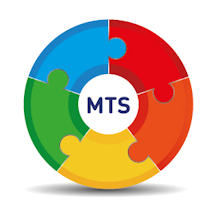
 'Making more nurses, one minute at a time:
an efficiency and quality improvement project
in emergency triage' an article by Anna Mackway-Jones, Rachael Hornby, Kevin Mackway-Jones
'Making more nurses, one minute at a time:
an efficiency and quality improvement project
in emergency triage' an article by Anna Mackway-Jones, Rachael Hornby, Kevin Mackway-Jones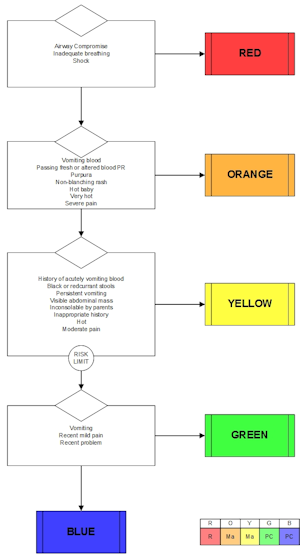 Every day, Emergency Departments are faced with increasing numbers of patients suffering from a wide range of problems; from minor illness and injury to major trauma and life threatening conditions. In order to ensure patient safety,
Every day, Emergency Departments are faced with increasing numbers of patients suffering from a wide range of problems; from minor illness and injury to major trauma and life threatening conditions. In order to ensure patient safety, 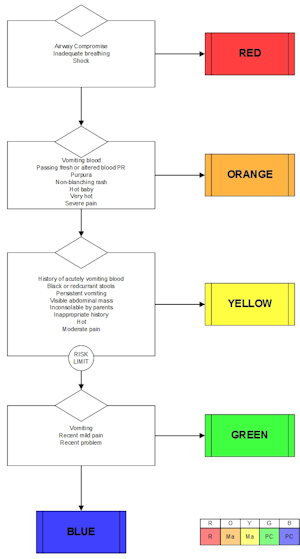
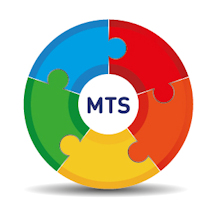
 The Manchester Triage System (MTS) is a series of clinical risk management tools used by clinicians worldwide to enable them to safely manage patient flow when clinical need far exceeds capacity. The following clinical risk management tools are available:
The Manchester Triage System (MTS) is a series of clinical risk management tools used by clinicians worldwide to enable them to safely manage patient flow when clinical need far exceeds capacity. The following clinical risk management tools are available: If you are interested in translating the book for
use on local courses, please contact
If you are interested in translating the book for
use on local courses, please contact 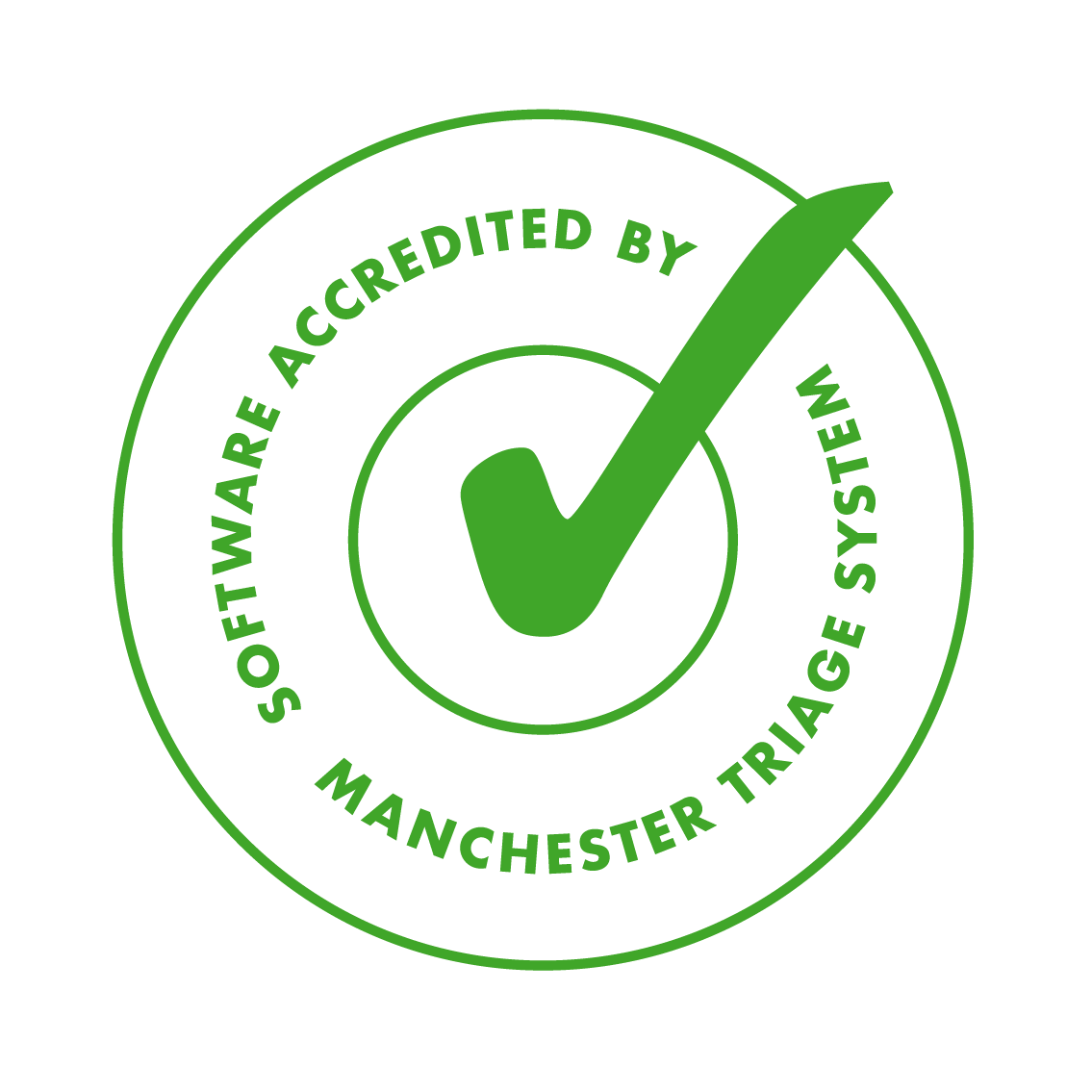
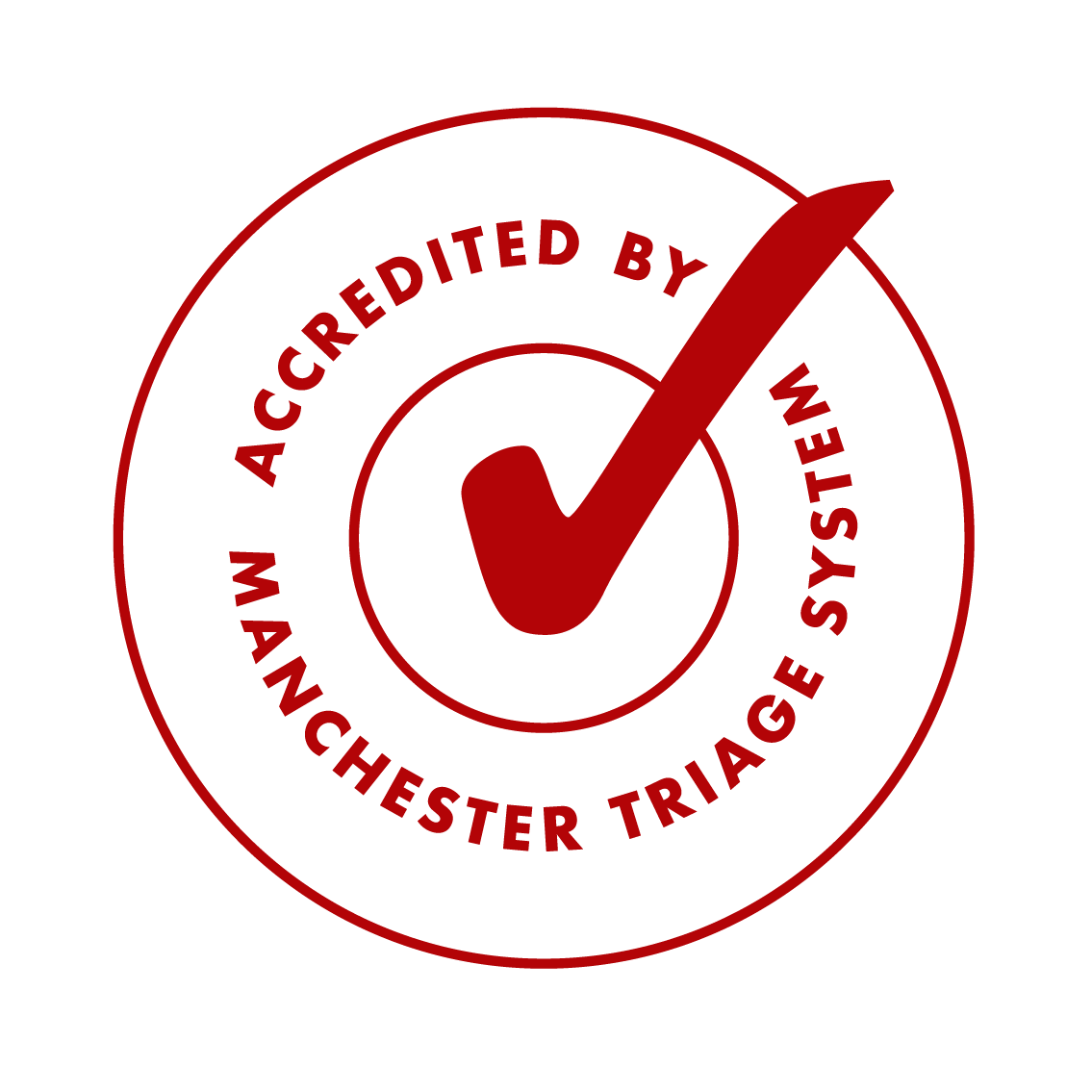
 Audit is a key requirement for Organisations who implement Manchester Triage Tools.
Audit is a key requirement for Organisations who implement Manchester Triage Tools. 

 If you have any concerns about any of the discriminators and wish to report this issue to the Manchester Triage Advisory Groups, then please
If you have any concerns about any of the discriminators and wish to report this issue to the Manchester Triage Advisory Groups, then please 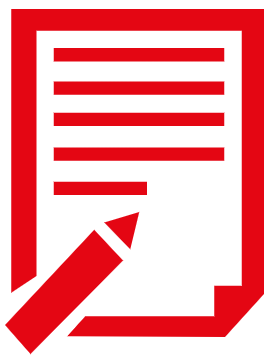 The Manchester Triage Group (MTG) support for editions of Emergency Triage is detailed below. The current version of the text is Emergency Triage, Manchester Triage Group, 3rd edition ISBN: 978-1-118-2906-7 and the
The Manchester Triage Group (MTG) support for editions of Emergency Triage is detailed below. The current version of the text is Emergency Triage, Manchester Triage Group, 3rd edition ISBN: 978-1-118-2906-7 and the